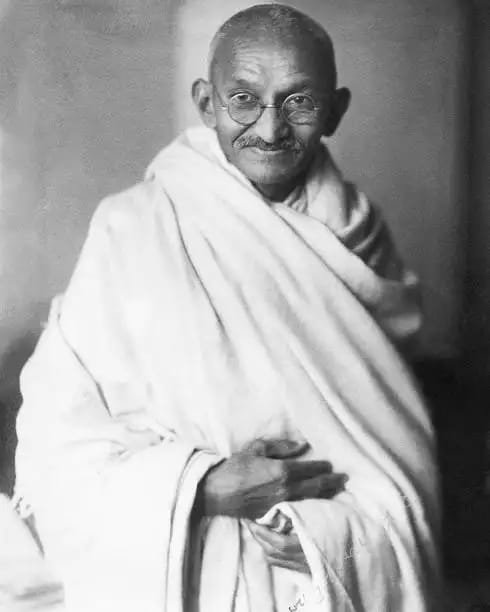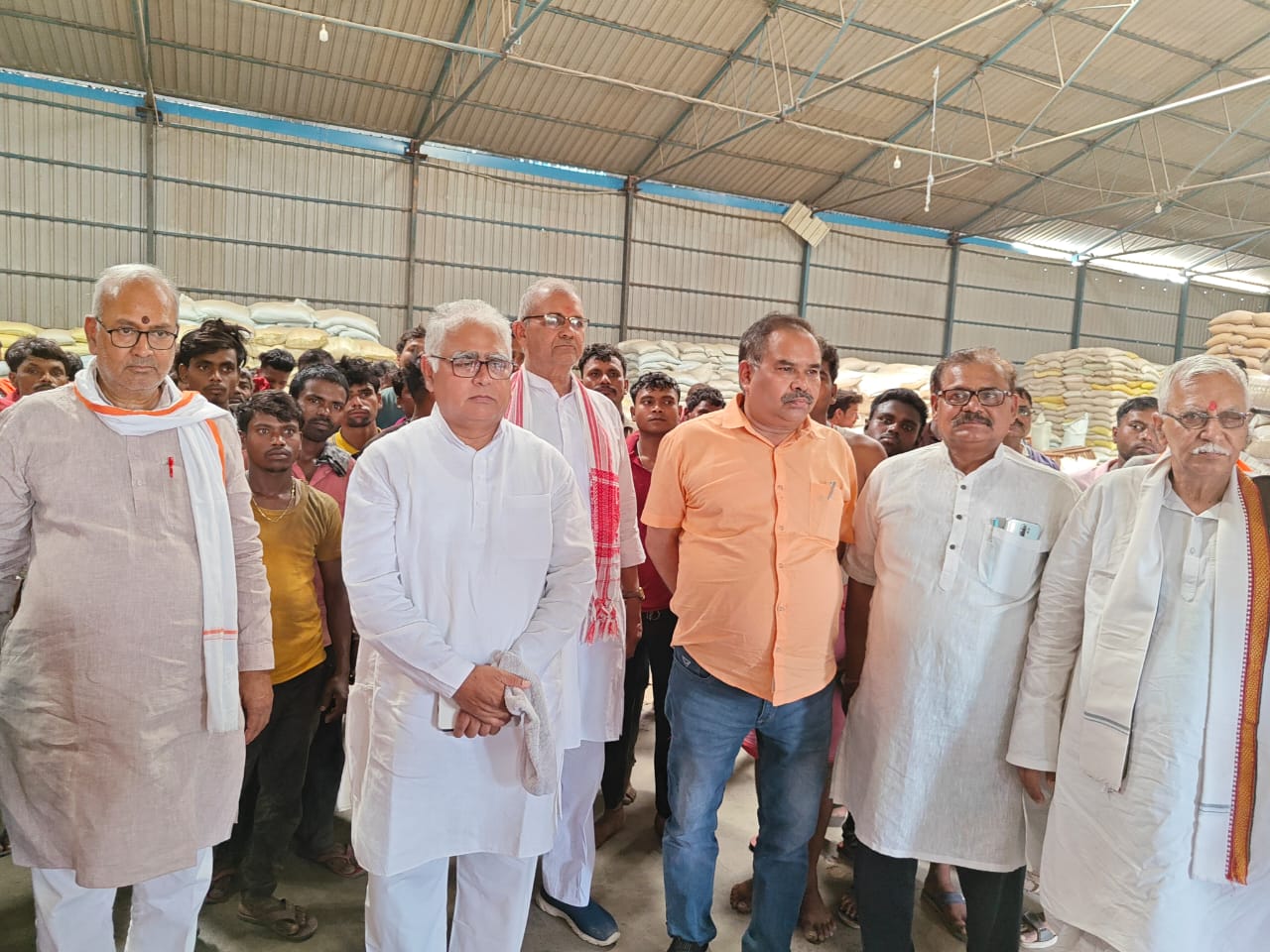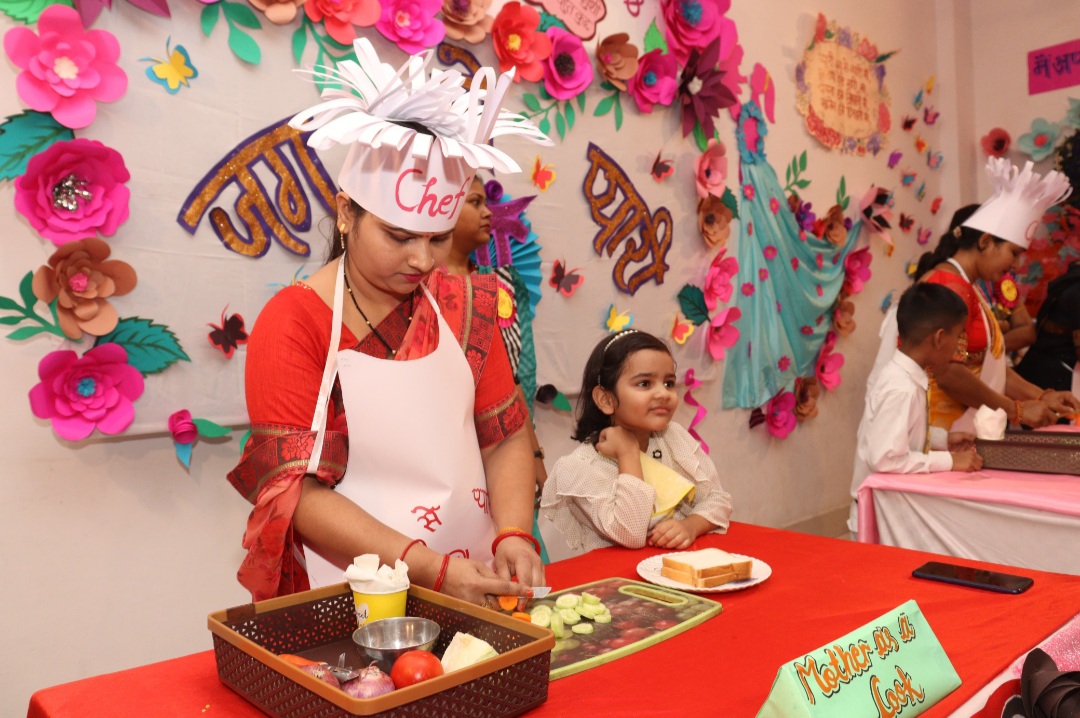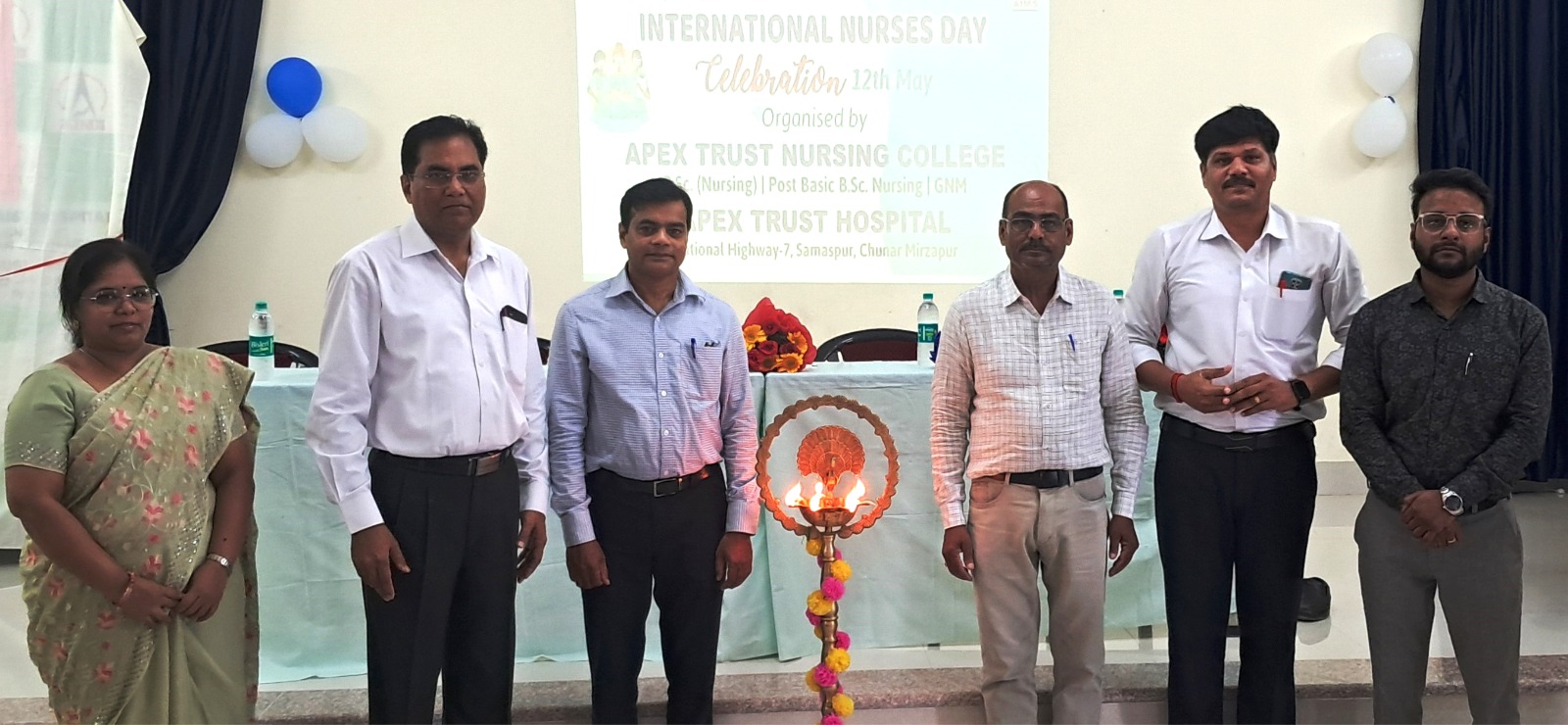Feature Desk.
Gandhi Ji is considered ‘The Great Soul’ or ‘The Mahatma’ in the eyes of millions of his followers worldwide. His fame spread throughout the world during his lifetime and only increased after his demise. Mahatma Gandhi, thus, is the most renowned person on earth.
Education of Mahatama Gandhi
Mahatma Gandhi’s education was a major factor in his development into one of the finest persons in history.
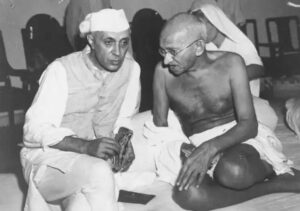
Although he attended a primary school in Porbandar and received awards and scholarships there, his approach to his education was ordinary. Gandhi joined Samaldas College in Bhavnagar after passing his matriculation exams at the University of Bombay in 1887.
Gandhiji’s father insisted he become a lawyer even though he intended to be a docto. During those days, England was the centre of knowledge, and he had to leave Smaladas College to pursue his father’s desire. He was adamant about travelling to England despite his mother’s objections and his limited financial resources.
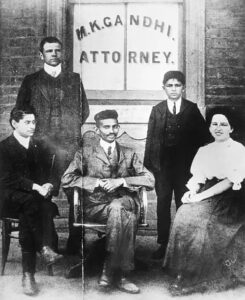
Finally, he left for England in September 1888, where he joined Inner Temple, one of the four London Law Schools. In 1890, he also took the matriculation exam at the University of London.When he was in London, he took his studies seriously and joined a public speaking practice group. This helped him get over his nervousness so he could practise law. Gandhi had always been passionate about assisting impoverished and marginalised people.
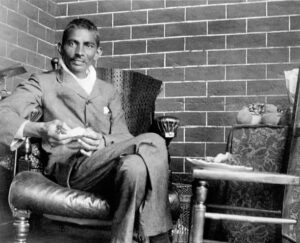
Mahatma Gandhi During His YouthGandhi was the youngest child of his father’s fourth wife. Mohandas Karamchand Gandhi was the dewan Chief Minister of Porbandar, the then capital of a small municipality in western India (now Gujarat state) under the British constituency.Gandhi’s mother, Putlibai, was a pious religious woman.
Mohandas grew up in Vaishnavism, a practice followed by the worship of the Hindu god Vishnu, along with a strong presence of Jainism, which has a strong sense of non-violence.Therefore, he took up the practice of Ahimsa (non-violence towards all living beings), fasting for self-purification, vegetarianism, and mutual tolerance between the sanctions of various castes and colours.
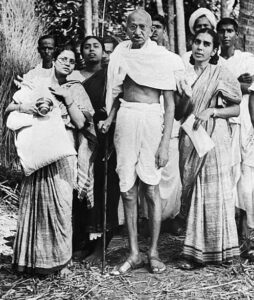
His adolescence was probably no stormier than most children of his age and class. Not until the age of 18 had Gandhi read a single newspaper. Neither as a budding barrister in India nor as a student in England nor had he shown much interest in politics. Indeed, he was overwhelmed by terrifying stage fright each time he stood up to read a speech at a social gathering or to defend a client in court.In London,
Gandhiji’s vegetarianism missionary was a noteworthy occurrence. He became a member of the executive committee in joined the London Vegetarian Society. He also participated in several conferences and published papers in its journal. Gandhi met prominent Socialists, Fabians, and Theosophists like Edward Carpenter, George Bernard Shaw, and Annie Besant while dining at vegetarian restaurants in England.
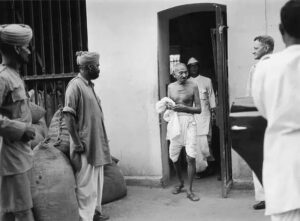

Political Career of Mahatma Gandhi
Nevertheless, in July 1894, when he was barely 25, he blossomed overnight into a proficient campaigner. He drafted several petitions to the British government and the Natal Legislature signed by hundreds of his compatriots. He could not prevent the passage of the bill but succeeded in drawing the attention of the public and the press in Natal, India, and England to the Natal Indian’s problems.
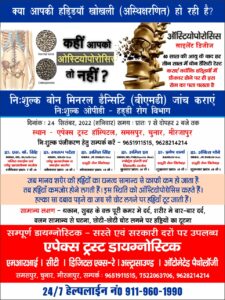
He still was persuaded to settle down in Durban to practice law and thus organised the Indian community. The Natal Indian Congress was founded in 1894, and he became the unwearying secretary. He infused a solidarity spirit in the heterogeneous Indian community through that standard political organisation.
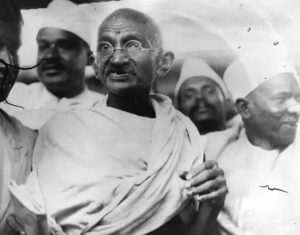
He gave ample statements to the Government, Legislature, and media regarding Indian Grievances.Finally, he got exposed to the discrimination based on his colour and race, which was pre-dominant against the Indian subjects of Queen Victoria in one of her colonies, South Africa.Mahatma Gandhi spent almost 21 years in South Africa.

But during that time, there was a lot of discrimination because of skin colour. Even on the train, he could not sit with white European people. But he refused to do so, got beaten up, and had to sit on the floor. So he decided to fight against these injustices, and finally succeeded after a lot of struggle.It was proof of his success as a publicist that such vital newspapers as The Statesman, Englishman of Calcutta (now Kolkata) and The Times of London editorially commented on the Natal Indians’ grievances.
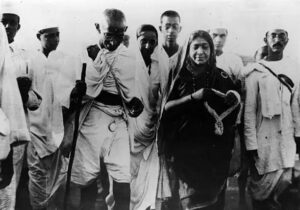
In 1896, Gandhi returned to India to fetch his wife, Kasturba (or Kasturbai), their two oldest children, and amass support for the Indians overseas. He met the prominent leaders and persuaded them to address the public meetings in the centre of the country’s principal cities.Unfortunately for him, some of his activities reached Natal and provoked its European population.

Joseph Chamberlain, the colonial secretary in the British Cabinet, urged Natal’s government to bring the guilty men to proper jurisdiction, but Gandhi refused to prosecute his assailants. He said he believed the court of law would not be used to satisfy someone’s vendetta.
Death of Mahatma Gandhi
Mahatma Gandhi’s death was a tragic event and brought clouds of sorrow to millions of people. On the 29th of January, a man named Nathuram Godse came to Delhi with an automatic pistol. About 5 pm in the afternoon of the next day, he went to the Gardens of Birla house, and suddenly, a man from the crowd came out and bowed before him.Then Godse fired three bullets at his chest and stomach, who was Mahatma Gandhi.

Gandhi was in such a posture that he to the ground. During his death, he uttered: “Ram! Ram!” Although someone could have called the doctor in this critical situation during that time, no one thought of that, and Gandhiji died within half an hour.How Shaheed Day is Celebrated at Gandhiji’s Samadhi (Raj Ghat)?As Gandhiji died on January 30, the government of India declared this day as ‘Shaheed Diwas’.On this day, the President, the Vice-President, the Prime Minister, and the Defence Minister every year gather at the Samadhi of Mahatma Gandhi at the Raj Ghat memorial in Delhi to pay tribute to Indian martyrs and Mahatma Gandhi, followed by a two-minute silence.
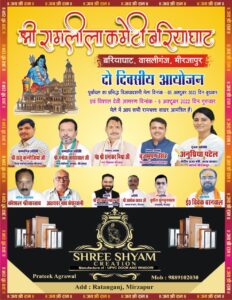
On this day, many schools host events where students perform plays and sing patriotic songs. Martyrs’ Day is also observed on March 23 to honour the lives and sacrifices of Sukhdev Thapar, Shivaram Rajguru, and Bhagat Singh. ConclusionGandhi believed it was his duty to defend India’s rights. Mahatma Gandhi had a significant role in attaining India’s independence from the British.
He had an impact on many individuals and locations outside India. Gandhi also influenced Martin Luther King, and as a result, African-Americans now have equal rights. Peacefully winning India’s independence, he altered the course of history worldwide.


